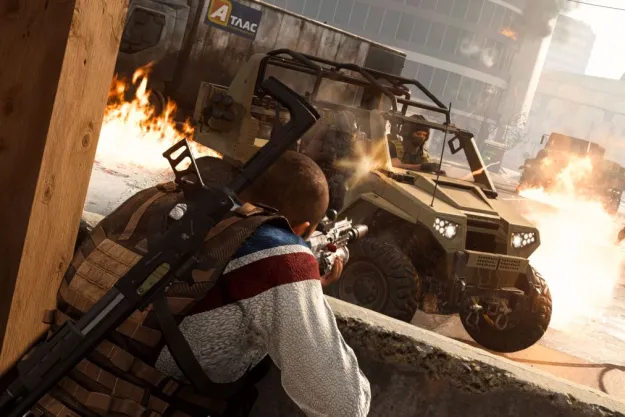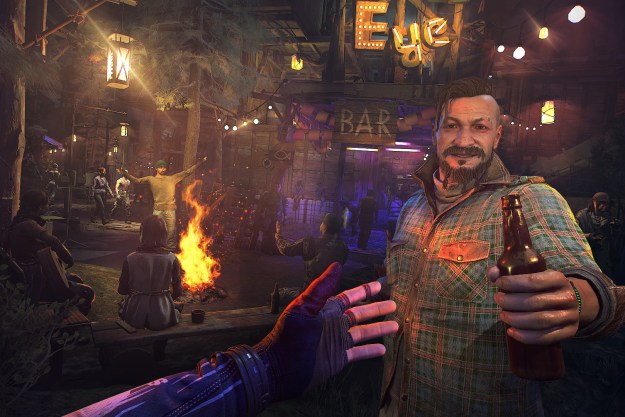Grand Theft Auto 6 is one of the most heavily rumored games ever, and before February 4, 2022, it was never officially acknowledged by Rockstar Games. Our only indication of its existence was through an April 2020 Kotaku article and a series of rumors dating back several years.
That's why it's so comical that its announcement came in the way of a footnote in a Rockstar Newswire post about the GTA series.
After years of expecting some sort of elaborate alternate reality game or event to reveal GTA 6, it was an extremely anticlimatic moment. While fans seemed to expect more from Rockstar's reveal of the next Grand Theft Auto, the actual confirmation demonstrates how Rockstar's parent company, Take-Two Interactive, was always more concerned with the financial implications of its announcement, rather than the fan reception.
Can I see it? No!
Grand Theft Auto fans have convinced themselves that a new entry in the series has been on the way for some time. As far back as February 2015, less than a year-and-a-half after GTA V's launch, speculation about a new entry in the series has existed online. From theory posts to bad 4Chan leaks trying to pass as real, we've seen plenty of speculation about GTA 6 and how Rockstar would go about revealing it.
Grand Theft Auto V was originally released for PS3 and Xbox 360 in 2013, and is coming to PS5 and Xbox Series X this year. Rockstar Games
The rumor to gain the most traction was "Project Americas." This leak claimed that GTA 6 is set in both Vice City and a Rio de Janeiro-inspired location in the 1970s or 1980s. Lots of other potential leaks continued to build on top of what this rumor established, so Project Americas has been the lifeblood of the hype cycle behind GTA 6.
We still technically don't know whether or not this leak is true, but there's no doubt that it added a substantial amount of fuel to the GTA 6 anticipation fire. But in reality, the ongoing success of GTA Online and the development of Red Dead Redemption 2 meant that GTA 6 was years away from coming to fruition. Following the release of Red Dead Redemption 2, GTA 6 once again started to feel like an inevitably. This all came to a head in an April 2020 Kotaku report that mentioned the game's existence.
While the focus of the article was on Rockstar's improved workplace culture, the thing most people took from it was the following line: "One plan that management has laid out for the next game, a new entry in the Grand Theft Auto series, is to start out with a moderately sized release (which, by Rockstar’s standards, would still be a large game) that is then expanded with regular updates over time, which may help mitigate stress and crunch."
Prior to February 2022, this was the closest thing to official confirmation we had for GTA 6. It then gave momentum to a bevy of new rumors, many of which were now centered around a potential reveal. Fans thought everything from the art for a new car in GTA Online to a new image on Rockstar's website was part of a massive teaser conspiracy ahead of GTA 6's reveal.
In the end, none of that came to be. Rockstar confirmed the new Grand Theft Auto in a tweet and a post about the series at large in a way that makes fan expectations seem laughable. But why did it end up this way?
Why Rockstar finally revealed GTA 6
The timing of this confirmation is key to why Rockstar shared this news. Shortly after Rockstar Games' posts revealing GTA 6 went live, Take-Two confirmed that its next earnings calling would be on Monday, February 7. Now, in the middle of a merger and acquisition rush in the video game industry, Take-Two can go to its investors and highlight that a new Grand Theft Auto game is on the horizon. Its confirmation makes the future outlook for Take-Two appear brighter, even if the reveal wasn't very elaborate or spectacular. As Take-Two and Rockstar's biggest franchise, any new information on GTA is good news for current and potential Take-Two Interactive investors.
This isn't even the first time Rockstar and Take-Two did this with the GTA series. The next-gen versions of GTA V got a November 11, 2021 release date prior to an earnings call. While it eventually got delayed, it certainly looked good for Take-Two to have a targeted release date to show investors. While GTA 6 might not launch for several years, confirming its existence is certainly appealing to investors who want a piece of the inevitable success the next Grand Theft Auto game will have.
It also helps from a hiring perspective. While the post doesn't directly specify that Rockstar is hiring, the knowledge that it is indeed working on GTA 6 will drive new people to apply. As Venture Beat points out, we've seen Respawn Entertainment, Blizzard, and Crytek also pull the same move this year alone, driving hiring with news of new games. Rockstar probably wants the best and brightest of the game's industry working on its games, and GTA 6 is certainly a game some developers might be willing to leave their current employer to work on.
In the end, GTA 6's announcement was more about enticing potential hires and investors, rather than hyping fans up with an awesome trailer or some complicated ARG that reveals Rockstar teased it for years. Is it awesome that the game is finally confirmed? Of course! Its reveal is just comically underwhelming after almost a decade of fans eagerly awaiting it. Hopefully, GTA 6's first trailer can make up for some of the lost hype around this reveal.
Grand Theft Auto 6 does not currently have a release date.


